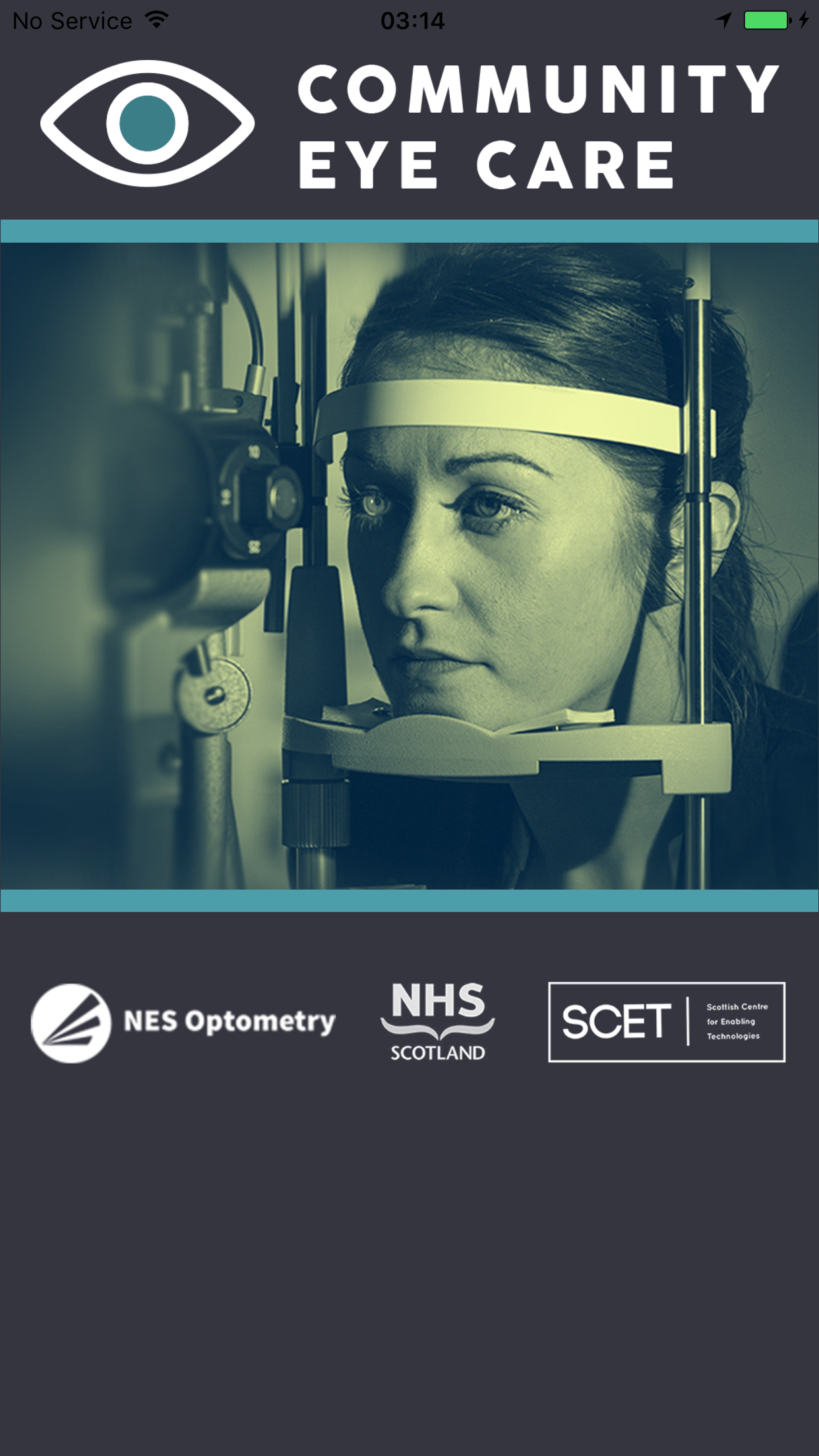Приложение временно недоступно

Описание
The Community Eye Care website and app have been developed by NHS Grampian and NHS Forth Valley, with the support of the Optometry department of NHS Education for Scotland (NES Optometry) and the Scottish Centre for Enabling Technologies, University of the West of Scotland. The guidelines give advice to support the management and care of patients in a primary care setting and have been based on the Scottish General Ophthalmic Services contract. Every professional must act within the boundaries of their own clinical competence and seek advice, or refer patients on, when this is reached. Some medication can only be utilised by Independent Prescribers or as part of a NHS Board’s Locally Enhanced Scheme.
In 2016, the Access Support Team, Directorate for Health Workforce & Performance Scottish Government Health & Social Care Directorates, as part of the National Ophthalmology Workstream- “Working Together to Deliver Eyecare Services across NHS Scotland” to improve new and return out-patient waiting times, agreed to fund NHS Grampian’s ophthalmology department’s request to develop an app/website for NHS Grampian’s Eye Health Network clinical guidelines.
The aim of the website and app is to improve standardisation, accessibility, usability and currency of primary care optometry clinical guidelines and pathways so that they can be better accessed by primary and secondary care on computers, mobile phones and tablet devices.
The guidelines have been adapted, with permission, from the College of Optometrist’s clinical management guidelines, to incorporate pragmatic experience gained from NHS Grampian’s Eye Health Network.
Since 2007, NHS Grampian’s Eye Health Network has provided care for many thousands of patients and, through the introduction of Local Enhanced Service Agreements, has allowed the treatment of acute anterior uveitis, herpes simplex keratitis and marginal keratitis, in association with general practice, within the primary care setting.
Elsewhere in Scotland, community optometrists are increasingly working in partnership with their colleagues in ophthalmology. Independent prescribing for optometry was introduced in 2008. The introduction of standardised pathways will not only help guide optometric independent prescribers to use their new-found skills in the most appropriate manner, but also help guide whether to treat in the community or refer onwards.
Each Topic is divided into four areas: differential diagnosis, possible management by optometrist (treatment and advice), management category and possible management by ophthalmologist.
It is not expected that all optometrists will wish, or be able, to manage patients in the full manner outlined. Furthermore, much of the advice is derived from clinical experience, rather than evidence, and thus is not set in stone- local protocols and pathways should always be followed.
Скрыть
Показать больше...
In 2016, the Access Support Team, Directorate for Health Workforce & Performance Scottish Government Health & Social Care Directorates, as part of the National Ophthalmology Workstream- “Working Together to Deliver Eyecare Services across NHS Scotland” to improve new and return out-patient waiting times, agreed to fund NHS Grampian’s ophthalmology department’s request to develop an app/website for NHS Grampian’s Eye Health Network clinical guidelines.
The aim of the website and app is to improve standardisation, accessibility, usability and currency of primary care optometry clinical guidelines and pathways so that they can be better accessed by primary and secondary care on computers, mobile phones and tablet devices.
The guidelines have been adapted, with permission, from the College of Optometrist’s clinical management guidelines, to incorporate pragmatic experience gained from NHS Grampian’s Eye Health Network.
Since 2007, NHS Grampian’s Eye Health Network has provided care for many thousands of patients and, through the introduction of Local Enhanced Service Agreements, has allowed the treatment of acute anterior uveitis, herpes simplex keratitis and marginal keratitis, in association with general practice, within the primary care setting.
Elsewhere in Scotland, community optometrists are increasingly working in partnership with their colleagues in ophthalmology. Independent prescribing for optometry was introduced in 2008. The introduction of standardised pathways will not only help guide optometric independent prescribers to use their new-found skills in the most appropriate manner, but also help guide whether to treat in the community or refer onwards.
Each Topic is divided into four areas: differential diagnosis, possible management by optometrist (treatment and advice), management category and possible management by ophthalmologist.
It is not expected that all optometrists will wish, or be able, to manage patients in the full manner outlined. Furthermore, much of the advice is derived from clinical experience, rather than evidence, and thus is not set in stone- local protocols and pathways should always be followed.
Скриншоты
Community Eye Care Частые Вопросы
-
Приложение Community Eye Care бесплатное?
Да, Community Eye Care полностью бесплатное и не содержит встроенных покупок или подписок.
-
Является ли Community Eye Care фейковым или мошенническим?
Недостаточно отзывов для надежной оценки. Приложению нужно больше отзывов пользователей.
Спасибо за ваш голос -
Сколько стоит Community Eye Care?
Приложение Community Eye Care бесплатное.
-
Сколько зарабатывает Community Eye Care?
Чтобы получить оценку дохода приложения Community Eye Care и другие данные AppStore, вы можете зарегистрироваться на платформе мобильной аналитики AppTail.

Оценки пользователей
Приложение еще не оценено в Польша.

История оценок
Community Eye Care Отзывы Пользователей
Community Eye Care Установки
30дн.Community Eye Care Доход
30дн.Community Eye Care Доходы и Загрузки
Получите ценные инсайты о производительности Community Eye Care с помощью нашей аналитики.
Зарегистрируйтесь сейчас, чтобы получить доступ к статистика загрузок и доходов и многому другому.
Зарегистрируйтесь сейчас, чтобы получить доступ к статистика загрузок и доходов и многому другому.
Информация о приложении
- Категория
- Medical
- Разработчик
-
University of the West of Scotland
- Языки
- English
- Последнее обновление
- 1.0.11 (6 лет назад )
- Выпущено
- Sep 28, 2017 (7 лет назад )
- Также доступно в
- Великобритания, ОАЭ, Швейцария, Испания, Ирландия, Израиль, Республика Корея, Мексика, Польша, Саудовская Аравия, Швеция, Турция, Соединенные Штаты, Южно-Африканская Республика
- Обновлено
- 10 месяцев назад
This page includes copyrighted content from third parties, shared solely for commentary and research in accordance with fair use under applicable copyright laws. All trademarks, including product, service, and company names or logos, remain the property of their respective owners. Their use here falls under nominative fair use as outlined by trademark laws and does not suggest any affiliation with or endorsement by the trademark holders.
AppTail.






